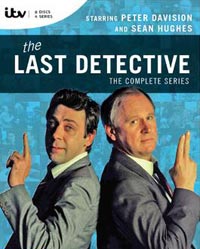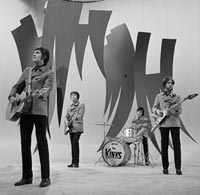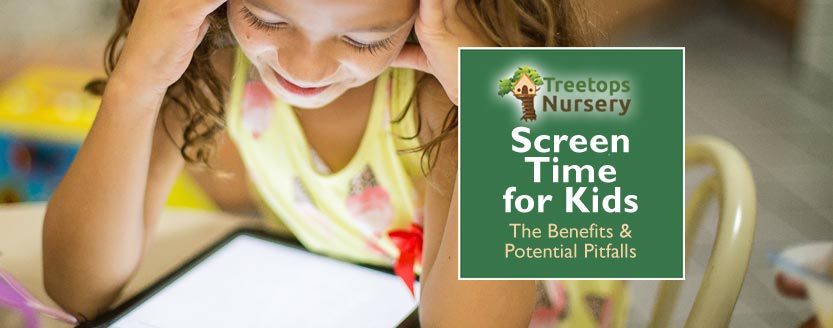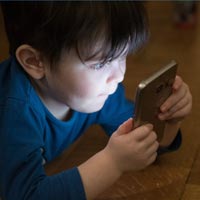
It’s surprising how many times Willesden and Willesden Green have made it into modern culture. After a little research, we’ve found that they’ve featured countless times on TV and in several pop songs, they’ve helped to launch careers of a myriad music legends and even shaped the global music industry. Take a look …
Willesden: Regular Filming Location for ‘Jonathan Creek’

 Willesden and other north-west London areas close by feature regularly in the long-running BBC mystery crime drama Jonathan Creek. This popular series stars actor and comedian Alan Davies as the main protagonist. Other occasional stars who appeared in the series included Griff Rhys Jones, Rik Mayall, Jack Dee (who we’ll hear more about below), Bill Bailey, Nigel Planer and even Bob Monkhouse.
Willesden and other north-west London areas close by feature regularly in the long-running BBC mystery crime drama Jonathan Creek. This popular series stars actor and comedian Alan Davies as the main protagonist. Other occasional stars who appeared in the series included Griff Rhys Jones, Rik Mayall, Jack Dee (who we’ll hear more about below), Bill Bailey, Nigel Planer and even Bob Monkhouse.
Jack Dee’s ‘Lead Balloon’: Also Filmed in Willesden
 Actor and dead-pan comedian Jack Dee co-wrote and starred in ‘Lead Balloon’, a BBC4 comedy series that first ran on British TV from 2006 to 2011. The first episode actually achieved the highest ever ratings for a comedy on the channel at the time and the series later aired on BBC2 and to audiences on BBC HD. There were three series in total, with the first two being filmed in and around Willesden. Indeed, the main characters Rick (played by Jack Dee) and his partner Mel (played by Raquel Cassidy) live in a house located in Willesden. A café called ‘Michael’s Café’ in series one and two is, in reality, ‘Gracelands Café’, which is located just a stone’s throw from Willesden in Kensal Green.
Actor and dead-pan comedian Jack Dee co-wrote and starred in ‘Lead Balloon’, a BBC4 comedy series that first ran on British TV from 2006 to 2011. The first episode actually achieved the highest ever ratings for a comedy on the channel at the time and the series later aired on BBC2 and to audiences on BBC HD. There were three series in total, with the first two being filmed in and around Willesden. Indeed, the main characters Rick (played by Jack Dee) and his partner Mel (played by Raquel Cassidy) live in a house located in Willesden. A café called ‘Michael’s Café’ in series one and two is, in reality, ‘Gracelands Café’, which is located just a stone’s throw from Willesden in Kensal Green.
‘Minder’ Used Willesden as a Film Location
 Willesden also features in the British TV comedy-drama ‘Minder’ that was extremely popular on ITV/Thames Television from late 1979 through to the mid-90s. One of the two key protagonists, Arthur Daley (played by George Cole), kept a lock-up garage in Willesden and this is where he kept all his merchandise. He also did many of his deals in and around the area. One episode of Minder was even called ‘Willesden Suite’. No less than 10 series aired in total, making George Cole and Dennis Waterman into household names.
Willesden also features in the British TV comedy-drama ‘Minder’ that was extremely popular on ITV/Thames Television from late 1979 through to the mid-90s. One of the two key protagonists, Arthur Daley (played by George Cole), kept a lock-up garage in Willesden and this is where he kept all his merchandise. He also did many of his deals in and around the area. One episode of Minder was even called ‘Willesden Suite’. No less than 10 series aired in total, making George Cole and Dennis Waterman into household names.
‘The Last Detective’: Filmed in Willesden, Harlesden & North London
 ‘The Last Detective’ was another extremely popular British TV drama that ran for 4 series between 2003 and 2007. The main protagonist was ‘Dangerous Davies’, a Detective Constable played by Peter Davison. ‘Dangerous Davies’ was, in fact, the series of books upon which the TV drama was based. Filming of episodes often took place in Willesden, Harlesden and other parts of north/north-west London. Indeed, episode 4 (s.3) was called ‘Willesden Confidential’ and episode 3 (s.4) was called ‘A Funny Thing Happened on the Way to Willesden’.
‘The Last Detective’ was another extremely popular British TV drama that ran for 4 series between 2003 and 2007. The main protagonist was ‘Dangerous Davies’, a Detective Constable played by Peter Davison. ‘Dangerous Davies’ was, in fact, the series of books upon which the TV drama was based. Filming of episodes often took place in Willesden, Harlesden and other parts of north/north-west London. Indeed, episode 4 (s.3) was called ‘Willesden Confidential’ and episode 3 (s.4) was called ‘A Funny Thing Happened on the Way to Willesden’.
How Zomba Records links Willesden to Britney Spears, Lady Gaga, Shania Twain & Many Other Pop Icons
Moving now to music, it’s incredible how big a part Willesden has quietly played in the history of modern music. Back in the 1970s, right in the middle of the British punk movement, Willesden became the birthplace of Zomba Records. The name is incredibly important within the music industry as it subsequently became the launchpad of many stellar careers and household names across the globe. Zomba was widely accepted to be the most successful independent music company (The Zomba Music Corporation sold for literally billions eventually). Along the way, Zomba bought legendary music company Rough Trade and itself eventually became owned by BMG, then later Sony Music Entertainment under the RCA/Jive Label Group umbrella and later still its artists moved across to Epic Records. One of the original founders of Zomba is a certain Mutt Lange, who became a legendary producer (later marrying Shania Twain) who has worked with Def Leppard, The Boomtown Rats, Huey Lewis and the News, Britney Spears, Nickelback, Maroon 5, Bryan Adams, Celine Dion, The Corrs, Billy Ocean, Lady Gaga, Muse, AC/DC, Foreigner, Tina Turner, Backstreet Boys, The Cars and many more. Music genres cover everything from rap and hip-hop to pop and rock. From humble beginnings, this Willesden company influenced music and culture around the entire world.
Zomba was widely accepted to be the most successful independent music company (The Zomba Music Corporation sold for literally billions eventually). Along the way, Zomba bought legendary music company Rough Trade and itself eventually became owned by BMG, then later Sony Music Entertainment under the RCA/Jive Label Group umbrella and later still its artists moved across to Epic Records. One of the original founders of Zomba is a certain Mutt Lange, who became a legendary producer (later marrying Shania Twain) who has worked with Def Leppard, The Boomtown Rats, Huey Lewis and the News, Britney Spears, Nickelback, Maroon 5, Bryan Adams, Celine Dion, The Corrs, Billy Ocean, Lady Gaga, Muse, AC/DC, Foreigner, Tina Turner, Backstreet Boys, The Cars and many more. Music genres cover everything from rap and hip-hop to pop and rock. From humble beginnings, this Willesden company influenced music and culture around the entire world.
Willesden, Morgan Studios & Their Links to Countless Music Legends
 ‘Morgan Studios’ was another very influential and successful music company that started life in Willesden, pre-dating Zomba, back in the 1960s. They went on to work with huge names like Free, Blind Faith, Led Zeppelin, Supertramp, Paul McCartney, Wings, Rod Stewart, Yes, Black Sabbath, Jethro Tull, Cat Stevens, Pink Floyd, Carly Simon, Alice Cooper, Lou Reed, The Who, The Jam, The Cure, The Stone Roses, Thin Lizzy, The Kinks (more about them below), Squeeze, Gary Moore, Peter Gabriel, Bonnie Tyler, Elton John, and many more household names. The recording studios were based at 169-171 High Road, Willesden, being owned originally by Barry Morgan, the drummer in successful bands like ‘Blue Mink’ and others. Interestingly, in 1980, Morgan Studios were sold half to Zomba (see above) and half to Robin Millar CBE who, four years later, produced the seminal album ‘Diamond Life’ by Sade. He is also a legendary music executive, who worked with many other huge names including Eric Clapton, Sting, Herbie Hancock, Elvis Costello, Bruce Hornsby, Malcolm McLaren and Alison Moyet to name just a few.
‘Morgan Studios’ was another very influential and successful music company that started life in Willesden, pre-dating Zomba, back in the 1960s. They went on to work with huge names like Free, Blind Faith, Led Zeppelin, Supertramp, Paul McCartney, Wings, Rod Stewart, Yes, Black Sabbath, Jethro Tull, Cat Stevens, Pink Floyd, Carly Simon, Alice Cooper, Lou Reed, The Who, The Jam, The Cure, The Stone Roses, Thin Lizzy, The Kinks (more about them below), Squeeze, Gary Moore, Peter Gabriel, Bonnie Tyler, Elton John, and many more household names. The recording studios were based at 169-171 High Road, Willesden, being owned originally by Barry Morgan, the drummer in successful bands like ‘Blue Mink’ and others. Interestingly, in 1980, Morgan Studios were sold half to Zomba (see above) and half to Robin Millar CBE who, four years later, produced the seminal album ‘Diamond Life’ by Sade. He is also a legendary music executive, who worked with many other huge names including Eric Clapton, Sting, Herbie Hancock, Elvis Costello, Bruce Hornsby, Malcolm McLaren and Alison Moyet to name just a few.
The Kinks’ Links to Willesden & Willesden Green
One of The Kinks’ most famous songs ‘Lola’ was also recorded at Morgan Studios, in Studio 1. Soon after, in 1971, a film came out starring Britt Ekland, Denholm Elliot and Elke Sommer. It was a British comedy called Percy and its soundtrack featured a slow, bluesy song penned by Ray Davies and, of course, performed by The Kinks. Called ‘Willesden Green’, it is apparently the only Kinks song sung by the band’s bass player (John Dalton a.k.a. ‘Nobby’). It’s lyrics showed a real fondness for Willesden Green and featured the following:
Well I tried to settle down Fulham Broadway
And I tried to make my home in Golders Green
But I gotta get that train
And go back home again
Oh how I miss the folks back home in Willesden Green
You know, I tried, I really tried to settle in this big city
And I always thought I could make it all on my very own
But there’s one thing that keeps calling me
To that little, that little semi-detached
That’s the folks, yeah, the folks back home
In Willesden Green.
It’s amazing how significant a part Willesden and nearby areas like Willesden Green, Harlesden and north-west London have played in modern culture. Yet we have only scratched the surface in this article! We hope that you found this article of interest. Please feel free to bookmark it and to share widely on social media if so.
Treetops Nursery — Another Legendary Place in Willesden!
This article was brought to you by the blogging team here at Treetops Nursery. We invite parents of babies, toddlers and under-five children in the area to consider the nursery for their childcare needs. If you are searching for an outstanding nursery or pre-school for weekday childcare in Willesden or near Willesden Green, Kensal Green or Harlesden, Treetops Nursery would make a great choice. Facilities are superb and the setting certainly ticks all the right boxes. Please contact us for more details or to arrange a visit by choosing from the following:
Image credits: Jack Dee: photo by Ed g2s, CC BY-SA 4.0. The Kinks: photo by W. Veenman, CC BY-SA 3.0 NL. Britney Spears: photo by Glenn Francis, CC BY-SA 4.0. Led Zeppelin: main image and thumbnail photos both by p_a_h (flickr user), CC BY 2.0. Other photos shown are either in the public domain or used under Fair Use guidelines.



 Of course, that can be the case. What’s more, such handheld screens are a great way for parents to keep children entertained when perhaps they need to get on with other things. Electronic handheld devices also teach children about technology and introduce them to IT; essential skills for them to master in this day and age. Even games can be educational, with some designed to improve children’s numeracy etc. while at the same time being enormous fun. The key, though, is for parents to ensure that children are looking at the right content and not for extended periods of time. Ideally, it should be content that’s informative — i.e. content that will teach them something new, introduce them to new topics and allow them to make discoveries that will educate them. So, the content needs to be chosen and curated by parents — not the child.
Of course, that can be the case. What’s more, such handheld screens are a great way for parents to keep children entertained when perhaps they need to get on with other things. Electronic handheld devices also teach children about technology and introduce them to IT; essential skills for them to master in this day and age. Even games can be educational, with some designed to improve children’s numeracy etc. while at the same time being enormous fun. The key, though, is for parents to ensure that children are looking at the right content and not for extended periods of time. Ideally, it should be content that’s informative — i.e. content that will teach them something new, introduce them to new topics and allow them to make discoveries that will educate them. So, the content needs to be chosen and curated by parents — not the child. There are some tools available to help parents accomplish this. While we don’t endorse any particular online safety application over any other, applications like
There are some tools available to help parents accomplish this. While we don’t endorse any particular online safety application over any other, applications like  Hundreds of scientist and medical professionals around the world are convinced that handheld devices like mobile phones and tablets are potentially harmful to humans, especially unborn children, when connected to Wi-Fi. They say that this is due to the ‘RF wireless radiation’ that the devices emit when connected to the web (etc.). What’s more, they appear to have some compelling science and research to back up their claims.
Hundreds of scientist and medical professionals around the world are convinced that handheld devices like mobile phones and tablets are potentially harmful to humans, especially unborn children, when connected to Wi-Fi. They say that this is due to the ‘RF wireless radiation’ that the devices emit when connected to the web (etc.). What’s more, they appear to have some compelling science and research to back up their claims.